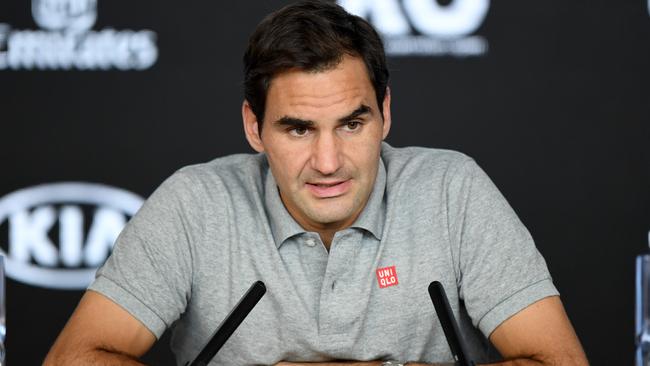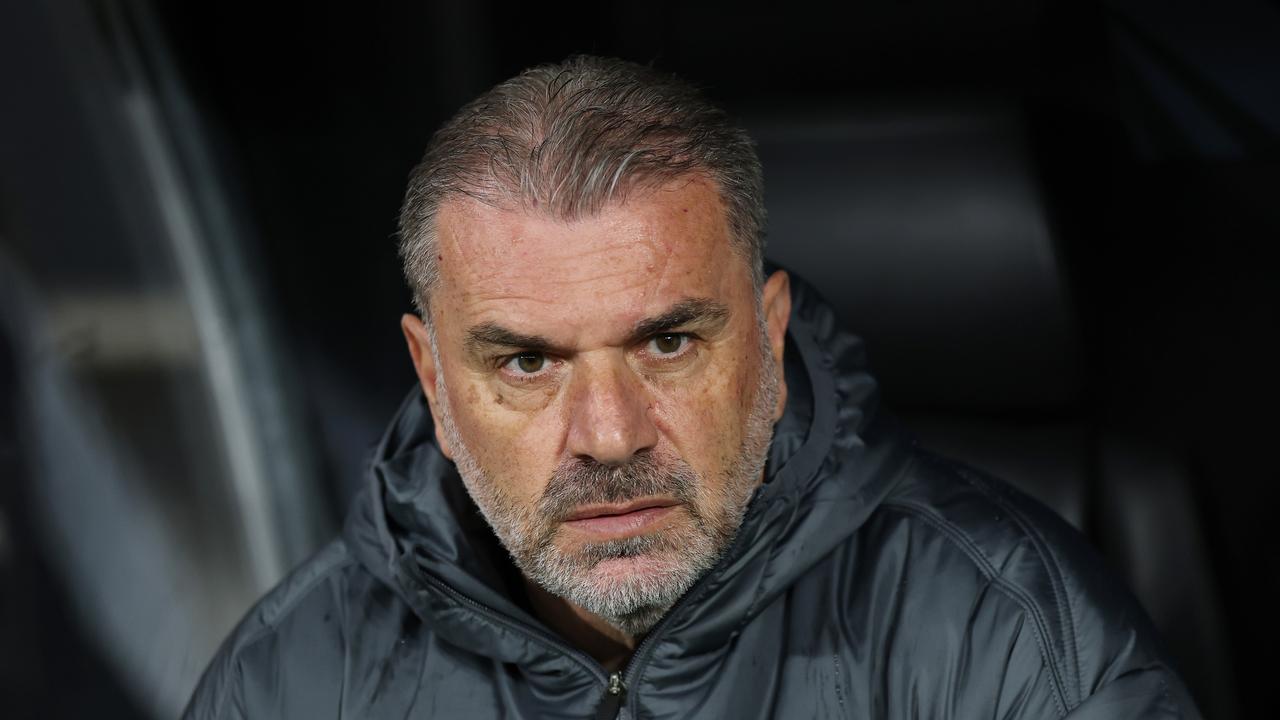Down and out but weary Roger Federer keeps record intact
In the hours leading up to his Open semi-final against Novak Djokovic, a weary Roger Federer had one of his many records in mind.

In the hours leading up to his Australian Open semi-final against Novak Djokovic on Thursday night, a weary Roger Federer had one of his many records in mind.
The 38-year-old has never retired during a match in a career spanning 1513 contests over 22 years, and he was eager to ensure that this statistic was not blemished.
It was a risk, then, for Federer to step out on to the Rod Laver Arena still suffering the effects of a groin injury from his previous match. He was well beaten, going down 7-6 (7-1), 6-4, 6-3 to Djokovic, the record seven-times Australian Open champion, but there was relief in making it to the end of the match after candid discussions with his team beforehand as to what he would do if the pain became too much to bear.
“I did believe there was something that could be done [in potentially winning the match] and felt that at least it (the injury) was probably not going to get worse,” Federer said. “If it did, this would have been my first retirement. We did talk about it with the team, how bad is it allowed to feel and all that stuff. But it never went there, so that’s good. But I was playing careful, obviously.”
It is one of the great records in tennis — some may even argue that it is more impressive than his 20 grand-slam singles titles — so it is understandable that Federer is protective of it. Even as long as 12 years ago, during a match against Andy Murray at the ATP Finals in Shanghai, he played through severe back pain to avoid a retirement, after slumping on a line judge’s chair at one point.
There was, however, still a sense of humiliation for Federer at the meagre challenge that he put up against Djokovic in the last four of a grand-slam tournament. After much anticipation in the build-up to the 50th instalment of this long rivalry, sadly there was little suspense in the actual event.
The first set was at least close. After all the whispers about Federer’s physical issues, he surprised us all by claiming an early break for a 2-0 lead. Djokovic’s eye was off the ball, instead distracted by the condition of his opponent, and he struggled on his own serve. But the turning point came when Federer served for the set at 5-3 and was broken to love, before Djokovic upped his level again in the tie-break to land a critical blow.
Federer left the court for a medical timeout and was noticeably slow in moving to his right side. He began to make more unforced errors, ending with 35 compared with Djokovic’s 18.
“Today was horrible, to go through what I did,” Federer, the No 3 seed, said. “It was a nice entrance, a nice send-off, but in between it is one to forget because you know you have a 3 per cent chance to win.
“You have got to go for it, you never know. But once you can see it coming, that it’s not going to work any more, it’s tough.”
As for the immediate future of Federer, he is hopeful that he will be fit to take part in a charity exhibition match next Friday against Nadal at the Cape Town Stadium, an event that is particularly meaningful for him as he has South African roots through his mother, Lynette. Looking further ahead, his fans will be delighted to hear that he answered the inevitable question on the likelihood of a return to Melbourne next year by insisting that retirement is not on the agenda.
“You never know what the future holds,” Federer said. “Especially at my age, you don’t know. But I’m confident. I’m happy with how I’m feeling, to be honest. I got through a good, nice training block. I have no plans to retire. From that standpoint, we’ll see how the year goes, how everything is with the family. Of course, I hope to be back.”
Federer then told another reporter that he still believes he can win another major title – what else would he say? – but a lighthearted reply to a suggestion that his best chance of winning a tournament is at Wimbledon was quite indicative of how tough it is for his ageing body to last the course of a grand-slam fortnight. “Probably Basel or Halle [two regular best-of-three-set events that he has won ten times each],” Federer said. “Less matches to play.”
THE TIMES



To join the conversation, please log in. Don't have an account? Register
Join the conversation, you are commenting as Logout